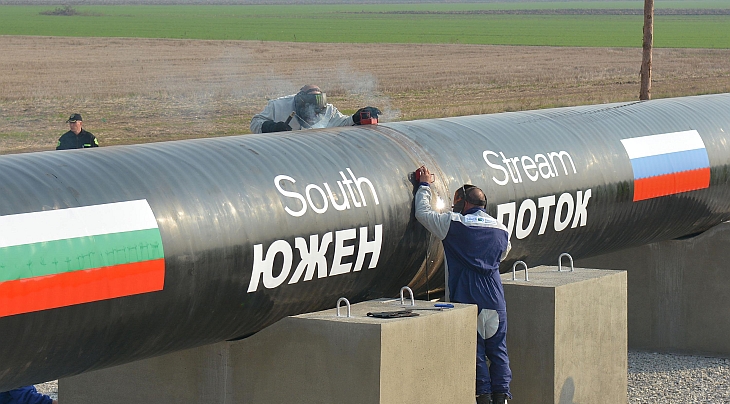The stand-off between the west and Russia over Ukraine will not derail the planned Russian-led South Stream gas pipeline, according to the head of the Austrian energy group OMV, FT reported.
Russia’s state gas monopoly, Gazprom, is pumping billions of dollars into the pipeline to carry Russian gas to Europe via the Black Sea and the Balkans from late 2015, allowing Gazprom to cut its reliance on Ukraine as a transit route.
However, as east-west tensions have mounted over Ukraine, the EU Commission has raised objections. In June, Brussels pressured Bulgaria to stop construction of its leg of the pipeline until it decides whether it complies with EU law.
Increasing the number of supply routes to Europe is beneficial for energy security
Despite the issues, Gerhard Roiss, chief executive of OMV – which in June reached a deal with Gazprom to extend South Stream from the Hungarian border to OMV’s gas hub outside Vienna – said he did not expect the project to be undermined, and that any delays would be manageable.
“Nobody can tell you not to build a pipeline. It’s a matter of national law… Everybody can decide for themselves,” he said. “A pipeline is a 50-year project, so one should look at things realistically… A few months is not an issue.”
Analysts are not so sure. “How much the situation in Ukraine deteriorates will determine the fate of South Stream,” says Trevor Sikorski from the consultancy Energy Aspects. “If things deteriorate much further, I can see the EU really stepping up its efforts to punish Russia”.
Ilya Zaslavskiy of Chatham House takes a similar line. “If Gazprom builds the offshore part of the pipeline by the end of 2015 as planned, it could end up with a stranded asset, because there is no way Bulgaria will let gas flow before the EU has decided on how new capacity should be treated.”
Mr Roiss, an ebullient 62-year-old, points out that gas is already flowing through another Russian-backed pipeline in northeast Germany, called Opal, even though Gazprom has not received EU approval to run it at full capacity.
He also warns against any move to ratchet up European sanctions against Vladimir Putin’s regime by targeting Russia’s gas industry, which supplies about 30 per cent of European demand for the fuel.
“We have had integration in the area of gas with Russia for 45 years,” he says, pointing out that OMV’s first gas contract with Gazprom was signed during the cold war. “Customers rely on getting their gas delivered. For that reason I don’t see any room for sanctions on gas.”
The EU has long viewed South Stream, which would have the capacity to deliver about 63bcm of gas per year – or about 15 per cent of EU demand – as conflicting with its efforts to diversify the bloc’s gas supplies away from Russia.
Mr Roiss argues that increasing the number of supply routes to Europe is beneficial for energy security.
“My view is very simple. Four pipelines are better than three, and five are better than four. That is the pragmatic view,” he says, adding that South Stream could one day carry gas from sources other than Russia, such as other Black Sea states or even the eastern Mediterranean.
